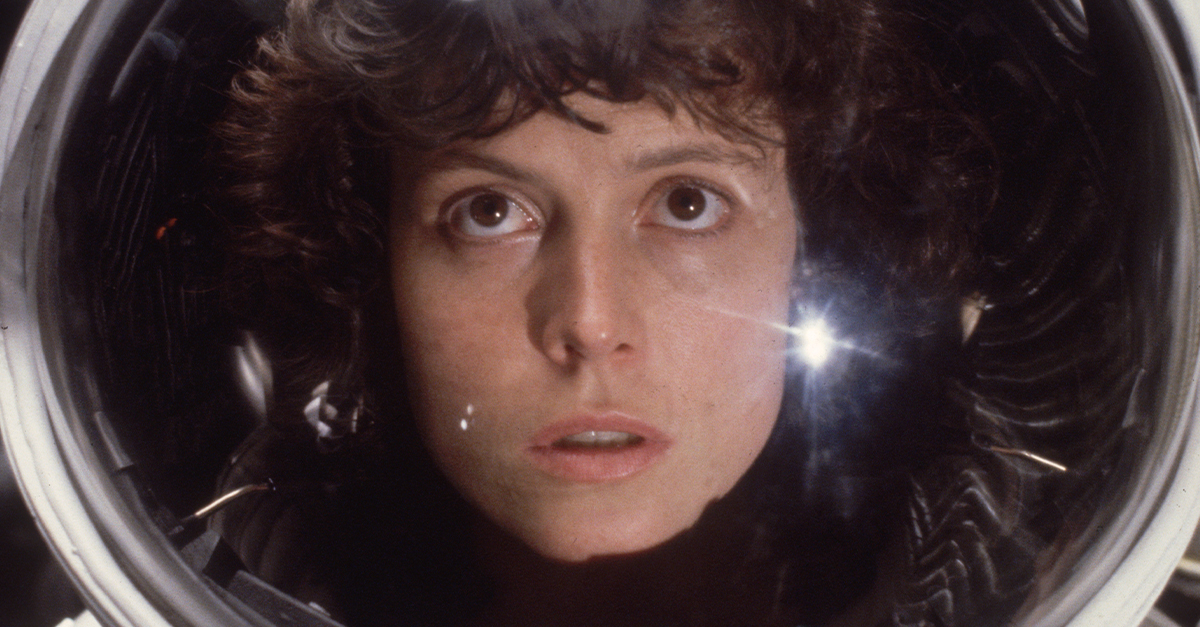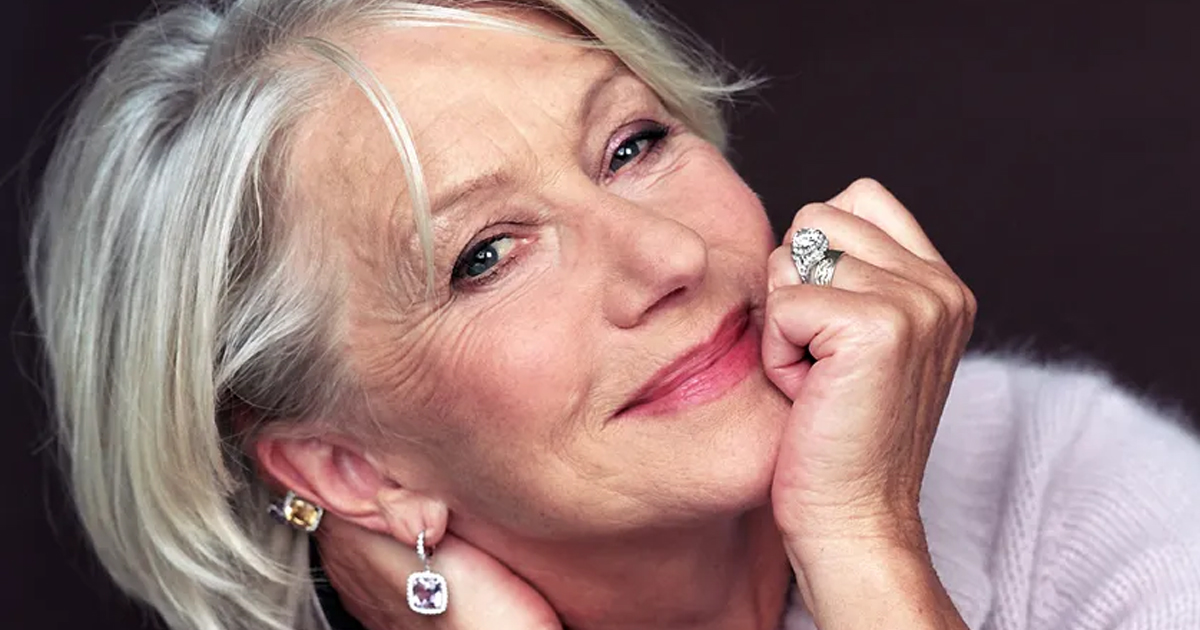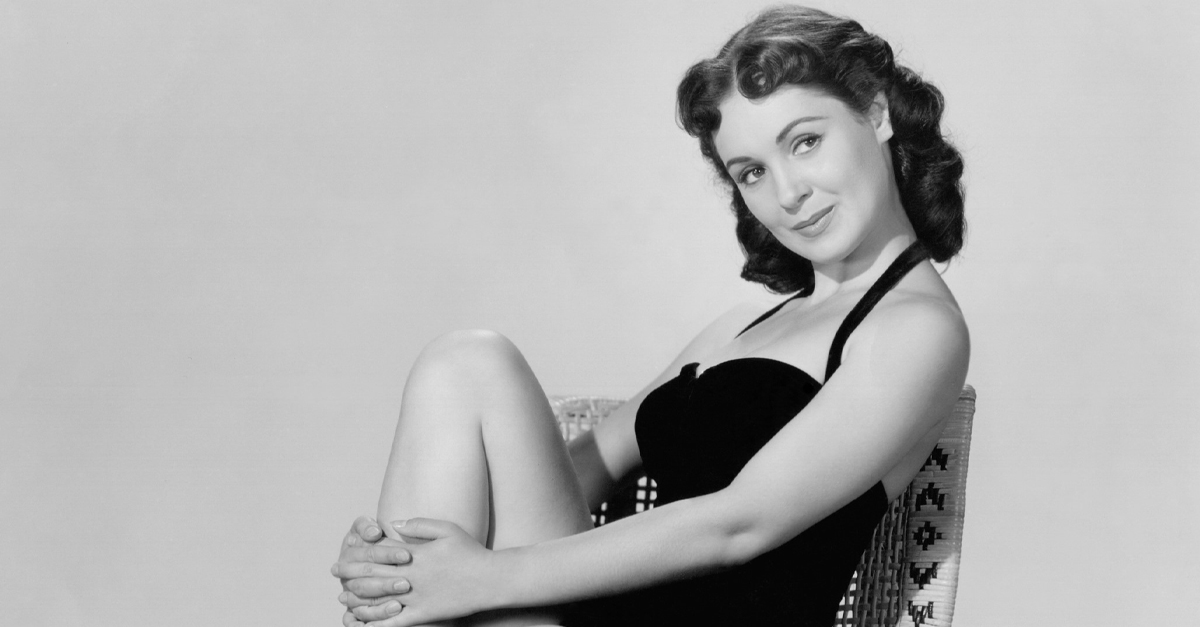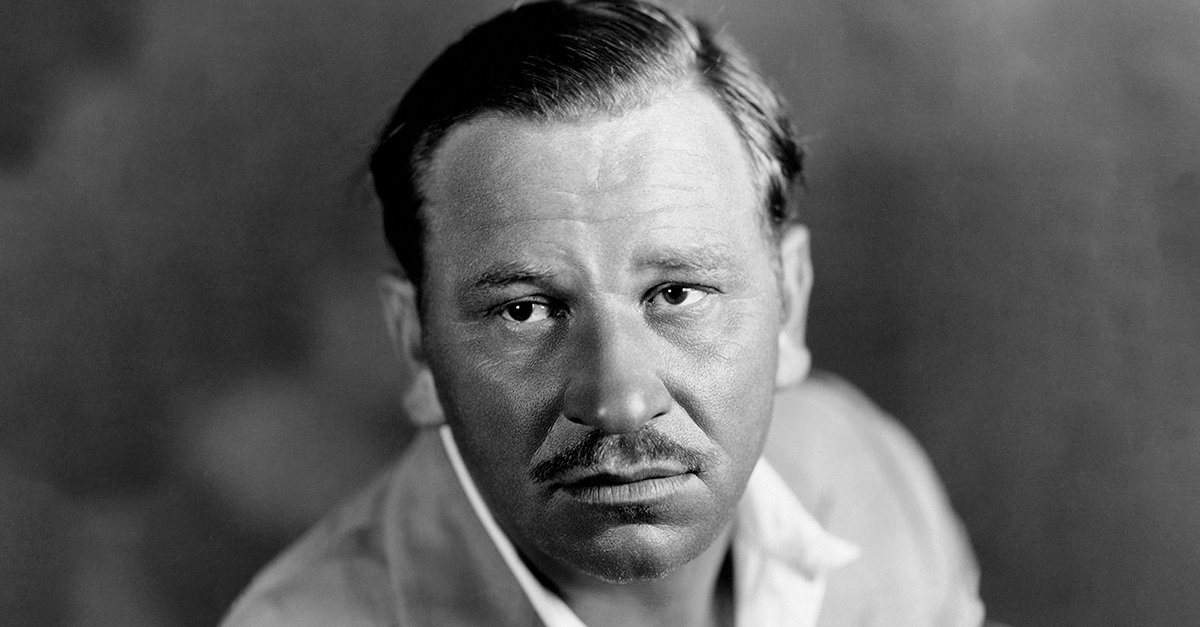The Joy Of Painting
Bob Ross, with his iconic afro and calming voice, made art attainable for all. Did you know this gentle soul spent 20 years in the Air Force, even becoming a Master Sergeant? Talk about range! Here are 44 more fun facts about this beloved figure.

While In The Army
Robert Norman Ross joined the Air Force in 1961 when he was just 18. However, due to his height and flat feet, he was unable to fly or work with aircraft, which led him to a desk job. So, he was stationed in Florida, where he worked as a medical records technician.
The Air Force Flew Him To His Destiny
After two years, Ross was transferred to Eielson Air Force Base in Alaska, approximately 25 miles outside of Fairbanks. This move was significant for him as it exposed him to the stunning Alaskan vistas—icebergs, ice fields, glaciers, forests, wildlife, Northern lights, and waterways.
A Unique Start To Art
It all began here in Alaska while he was serving in the Air Force. During his time, he marveled at the beauty of nature, which would later inspire his paintings. This shift from military life to art shaped his future. It's a switch that introduced him to the world.
 SrA Dan Saylor, Wikimedia Commons
SrA Dan Saylor, Wikimedia Commons
He Served For 20 Years
Bob retired from the United States Air Force in 1981 after serving for 20 years. By then, his passion for painting had taken root because he would paint in between breaks. He would sell these pieces and thought to himself, "I could pursue this!" And he did.
 Bob Ross - Island in the Wilderness (Season 29 Episode 1) by Bob Ross
Bob Ross - Island in the Wilderness (Season 29 Episode 1) by Bob Ross
From One Painter To Another
Bob Ross was influenced by the TV broadcast by a German painter, Bill Alexander, called "The Magic of Oil Painting". He studied under Alexander and later credited him as a significant influence on his artistic development. He learned to paint using his techniques and eventually adapted them to create his own.
 Bill Alexander Art - Majestic Wilderness by Alexander Art- The Home of Bill Alexander
Bill Alexander Art - Majestic Wilderness by Alexander Art- The Home of Bill Alexander
Before Retiring, He Also Became A Bartender
Before art and TV, Bob had another job not connected to the two. He worked briefly as a bartender. This was way back in 1975, and it was at this job that he came across his mentor's show, Bill Alexander. He learned to connect with people at this job.
 Where Are All the Bob Ross Paintings? We Found Them. by The New York Times
Where Are All the Bob Ross Paintings? We Found Them. by The New York Times
An Unlikely TV Star
Before he took his talent on camera, Bob worked as a painter on a commercial fishing boat in Alaska to supplement his income. His career took a pivotal turn when he started teaching painting classes, and it caught Annette Kowalski's eye. Kowalski helped him launch the show on PBS.
 Bob Ross - Pot O' Posies (Season 29 Episode 10) by Bob Ross
Bob Ross - Pot O' Posies (Season 29 Episode 10) by Bob Ross
The Birth Of The Joy Of Painting
In 1983, Bob Ross launched his television series The Joy of Painting. The show aired for over 11 years and featured 403 episodes. Each episode was a fresh take on painting. He gave viewers step-by-step instructions and encouraged them to unleash their creativity and paint alongside him.
 Bob Ross - A Walk in the Woods (Season 1 Episode 1) by Bob Ross
Bob Ross - A Walk in the Woods (Season 1 Episode 1) by Bob Ross
Bob Didn't Name The Show
While synonymous with The Joy of Painting, Bob was never on the team that named the show. The title was the brainchild of PBS producers. He was more focused on teaching art than branding himself, and it worked wonderfully for him.
 Bob Ross: The Best of the Joy of Painting | Promo by SouthCarolinaETV
Bob Ross: The Best of the Joy of Painting | Promo by SouthCarolinaETV
He Became A Master Of The Wet-On-Wet Technique
The wet-on-wet painting technique was popularized by Bob in his TV show. This method allows artists to blend colors directly on the canvas to create soft edges and smooth transitions. In just a few strokes, it makes it easier for anyone to achieve stunning results.
 Bob Ross - Towering Peaks (Season 10 Episode 1) by Bob Ross
Bob Ross - Towering Peaks (Season 10 Episode 1) by Bob Ross
His Canvas Of Choice
Painters usually go for the most expensive canvases because they are of the best quality. Not Bob. He preferred cheap canvas boards because he believed art should be accessible. "If it's too expensive, it scares people away," he said. Bob's approach to using affordable materials helped demystify the painting process.
 Bob Ross - Towering Peaks (Season 10 Episode 1) by Bob Ross
Bob Ross - Towering Peaks (Season 10 Episode 1) by Bob Ross
Painting With Numbers
Here's a fun stat: Bob painted an estimated 1,143 landscapes during his TV career. That's one every day for over three years. This impressive statistic contributes to his legacy as an influential figure in art education and pop culture.
 Where Are All the Bob Ross Paintings? We Found Them. by The New York Times
Where Are All the Bob Ross Paintings? We Found Them. by The New York Times
The Fan Mail Flood
The Bob effect was felt all over the world such that he received over 200 letters a week during his peak. And guess what? The guy went above and beyond and tried to respond to as many as possible. This simply added a layer of his signature kindness.
 Bob Ross - Evergreens at Sunset (Season 7 Episode 3) by Bob Ross
Bob Ross - Evergreens at Sunset (Season 7 Episode 3) by Bob Ross
He Was A Big Guy
Standing at 6 feet 2 inches tall, Bob Ross had a commanding presence. However, his gentle demeanor and calming voice made him approachable. His personality resonated with fans who adored the comforting atmosphere he created, which drew viewers into his world of art.
 Where Are All the Bob Ross Paintings? We Found Them. by The New York Times
Where Are All the Bob Ross Paintings? We Found Them. by The New York Times
A Love For Animals
Bob Ross was an avid animal lover—squirrels, raccoons, owls, cranes, and even deer. He had two pet squirrels named Peapod and Peapod Jr., who gained fame during his television show. There were even accounts that he rehabilitated a few animals before releasing them back into the wild.
 Bob Ross: The Best of the Joy of Painting | Promo by SouthCarolinaETV
Bob Ross: The Best of the Joy of Painting | Promo by SouthCarolinaETV
The Mystery Of His Paintings
Many fans wonder if Bob ever sold his artwork. Surprisingly, he sold a few paintings during his lifetime. He preferred gifting them to friends or donating to charity auctions. "A Walk in the Woods", made in the first episode, was sold at a PBS fundraiser and was later auctioned.
 Bob Ross' first TV painting listed for $9.85 million by Associated Press
Bob Ross' first TV painting listed for $9.85 million by Associated Press
The Unexpected Therapy Session
To perfect his TV voice, Bob took lessons from radio broadcasters. He wanted to sound as soothing as his brushstrokes. It was successful because many people found his soft tone and relaxed demeanor to be incredibly soothing and engaging. Mission accomplished.
 Bob Ross - Meadow Stream (Season 5 Episode 13) by Bob Ross
Bob Ross - Meadow Stream (Season 5 Episode 13) by Bob Ross
The Influence Of Nature
Nature was the center stage of Bob's work. Thankfully, his Air Force expedition to Alaska and the boating job gave him material to work with. Practice makes perfect, right? During these times, he practiced on numerous Alaskan landscapes. It's purported he sold them at flea markets, fairs, and malls.
 Bob Ross - Sunset Aglow (Season 26 Episode 12) by Bob Ross
Bob Ross - Sunset Aglow (Season 26 Episode 12) by Bob Ross
Teaching Philosophy
Bob Ross's teaching philosophy leaned towards encouragement over criticism. He famously said, "There are no mistakes, only happy accidents". Having this kind of mindset fostered an environment where viewers felt empowered to express themselves without fear of failure.
 Bob Ross - Winter Frost (Season 10 Episode 12) by Bob Ross
Bob Ross - Winter Frost (Season 10 Episode 12) by Bob Ross
A Painter's Palette
Bob used a limited palette of colors in his paintings: titanium white, phthalo blue, ultramarine blue, cerulean blue, midnight black, dark sienna, bright red, cadmium yellow, and yellow ochre. Bob's approach to keeping it simple allowed beginners to focus on technique rather than overwhelming choices.
 Bob Ross - Winter Frost (Season 10 Episode 12) by Bob Ross
Bob Ross - Winter Frost (Season 10 Episode 12) by Bob Ross
The Power Of Music
If you ever watched Bob paint, you'd also be graced with melodious instrumentals he played in the background. These tunes enhanced the tranquil atmosphere of his shows. One notable piece that was often played during his episodes is "Interlude", composed by Larry Muhoberac.
 Bob Ross ASMR by Asmr Before sleep
Bob Ross ASMR by Asmr Before sleep
The Joy Of Teaching
Bob loved to teach such that he conducted workshops across the country where he shared his techniques with aspiring artists. For instance, in 1993 Bob held a significant workshop at the Bob Ross Art Workshop & Gallery in New Smyrna Beach, Florida. This venue became a central location.
 Where Can You See 54 Original Bob Ross Paintings? By Traveling With Em & Me
Where Can You See 54 Original Bob Ross Paintings? By Traveling With Em & Me
Bob Was A Really Funny Guy
In an episode titled "Towering Glacier" from 1987, Bob opened with a playful invitation to viewers: "Now then, today, let's get crazy. Let's get crazy. We're going to check out your nerves today. See if you're brave". He did this often, and it set a fun tone for all sessions.
 Bob Ross - Towering Glacier (Season 11 Episode 5) by Bob Ross
Bob Ross - Towering Glacier (Season 11 Episode 5) by Bob Ross
The Art Supply Line
In addition to teaching on television and workshops, Bob Ross launched an art supply line called the "Bob Ross Master Paint Set". It features brushes, paints, and canvases designed specifically for beginners. These tools were meant to help painters perfectly execute the wet-on-wet painting technique.
 Bob Ross Paint Set Unboxing - Opening a relic from years past by Paint with Bram
Bob Ross Paint Set Unboxing - Opening a relic from years past by Paint with Bram
A Philanthropist At Heart
Bob Ross was a philanthropist, giving grants totaling approximately $635,000. He created the Bob Ross Foundation to promote arts education and support various non-profit organizations: Meals on Wheels to deliver meals to the needy, GLBT Historical Society for art digitalization, and local art organizations to foster creativity.
 The Untold Truth Of Bob Ross by Grunge
The Untold Truth Of Bob Ross by Grunge
Fast Paints, Faster Success
Can you finish an entire canvas in 30 minutes? Well, Bob could complete an entire painting in just under 30 minutes and do it to perfection. This speed was no accident; the wet-on-wet technique that he had mastered was one reason this was so, as it catered to TV audiences.
 Bob Ross - Mountain Summit (Season 13 Episode 10) by Bob Ross
Bob Ross - Mountain Summit (Season 13 Episode 10) by Bob Ross
The Mystery Of The Mountains
Many viewers attest that when Bob painted, his mountains always look uniquely textured. Here is the tea; he used a palette knife in a way no one else could replicate, and this became his signature style. If you dare, give it a go.
 Bob Ross - Western Expanse (Season 6 Episode 11) by Bob Ross
Bob Ross - Western Expanse (Season 6 Episode 11) by Bob Ross
He Was Also A Published Author
Bob Ross published books during his career, which included instructional content based on his television series. Some notable publications include the Bob Ross: The Joy of Painting series and This Is Your World: The Story of Bob Ross, a children's book biography released in 2021.
 This Is Your World: The Story of Bob Ross Official Book Trailer by Sophia Gholz
This Is Your World: The Story of Bob Ross Official Book Trailer by Sophia Gholz
A Quiet Multi-Millionaire
Though he never flaunted it, Ross's business ventures—including paints, brushes, workshops, and books—made him incredibly wealthy. Ironically, he lived modestly by preferring to focus on teaching rather than profit. He dressed casually, and his home wasn't extravagant.
 The Untold Truth Of Bob Ross by Grunge
The Untold Truth Of Bob Ross by Grunge
Happy Trees? Meet Happy Campers!
Bob partnered with PBS to host art camps for kids and families. These camps taught painting basics and emphasized finding joy in creativity, not perfection. These partnerships made Bob's influence spread like wildfire. Many families loved this initiative.
 Critters and Little Rascals (Part 1) | The Joy of Painting with Bob Ross by Bob Ross
Critters and Little Rascals (Part 1) | The Joy of Painting with Bob Ross by Bob Ross
His Show Had No Commercials
Unlike many TV programs during that time (as well as today), The Joy of Painting aired without ad breaks. Yep, no commercials on the latest phone or shoe interrupted your painting sessions. PBS believed the uninterrupted format suited the show's calming presence and allowed viewers to fully immerse themselves.
 Critters and Little Rascals (Part 1) | The Joy of Painting with Bob Ross by Bob Ross
Critters and Little Rascals (Part 1) | The Joy of Painting with Bob Ross by Bob Ross
PBS Didn't Pay Him Much
Despite the show's massive success, Bob Ross wasn't paid much for hosting The Joy of Painting. His real income came from selling art supplies and running workshops. But he really did not mind it because he was never there for the money.
 Critters and Little Rascals (Part 1) | The Joy of Painting with Bob Ross by Bob Ross
Critters and Little Rascals (Part 1) | The Joy of Painting with Bob Ross by Bob Ross
His Love For Trees Was Genuine
Bob planted trees wherever he could. He often referred to trees as "nature's storytellers," highlighting their importance in creating a sense of place and emotion in his paintings. As a matter of fact, about 91% of his paintings contained at least one tree.
 Bob Ross: The Joy of Painting - Arms on the Tree by Bob Ross
Bob Ross: The Joy of Painting - Arms on the Tree by Bob Ross
He Played The Banjo
His art also extended into music because Bob was a talented banjo player. His love for music was another outlet for his creative spirit. While we know he did play the banjo, it's unclear when he learned it and if he ever played for people publicly.
He Was Never Scripted
The Joy of Painting had no script. Every word and brushstroke was spontaneous, which made his presence feel authentic and relatable. Imagine forgetting your lines mid-paint? Wouldn't that be awkward? The no-script approach was the best one.
 Bob Ross - Island in the Wilderness (Season 29 Episode 1) by Bob Ross
Bob Ross - Island in the Wilderness (Season 29 Episode 1) by Bob Ross
He Married Thrice
Bob Ross was married three times and had two children. His first nuptials was to Vivian Ridge in 1965, with whom he had a son named Robert Stephen "Steve" Ross. Steve also became a master in landscape painting, with some people considering him better than his father.
 Bob Ross - Mountain Range (Season 8 Episode 11) by Bob Ross
Bob Ross - Mountain Range (Season 8 Episode 11) by Bob Ross
Second And Third Marriage
Shortly after he divorced Viviane in 1977, he married Jane, but this marriage ended when she passed away from lung cancer in 1992. Finally, he married Lynda Brown in 1995. None of these gave him any kids, but Bob already had two. Before Steve, there was…
 Bob Ross - In the Midst of Winter (Season 31 Episode 12) by Bob Ross
Bob Ross - In the Midst of Winter (Season 31 Episode 12) by Bob Ross
An Unknown Child
The name of Bob Ross's other child, whom he fathered during his teenage years, is not publicly known. This child is often referred to as Bob's "illegitimate child," and there is very little information available about them. Details about Bob's first child remain largely private and undisclosed.
 Bob Ross - In the Midst of Winter (Season 31 Episode 12) by Bob Ross
Bob Ross - In the Midst of Winter (Season 31 Episode 12) by Bob Ross
His Third Marriage Was Cut Short
Soon after marrying Lynda, on July 4, 1995, at the age of 52, Bob passed away. It was due to complications from lymphoma—a type of cancer. Ross had been battling cancer for several years, and his condition was kept relatively private until his passing.
 Bob Ross - Towering Peaks (Season 10 Episode 1) by Bob Ross
Bob Ross - Towering Peaks (Season 10 Episode 1) by Bob Ross
Bob Had One Sibling
Bob had a half-brother named Jim Cox. The pair share the same mother, Ollie Ross. While they weren't raised together, they maintained a familial connection. Based on existing knowledge, Jim took up roles related to managing Bob Ross Inc. and overseeing the legacy of Bob Ross after his demise.
 Bob Ross - Distant Mountains (Season 14 Episode 1) by Bob Ross
Bob Ross - Distant Mountains (Season 14 Episode 1) by Bob Ross
He Left His Estate To…
Upon his death, Bob had established the Bob Ross Trust. It designated 51% of the interest in all rights related to his name, image, and likeness to Jim Cox and 49% to Steve. However, this arrangement was not met well by his associates, and it led to a few legal battles.
 Bob Ross - On a Clear Day (Season 14 Episode 8) by Bob Ross
Bob Ross - On a Clear Day (Season 14 Episode 8) by Bob Ross
Remember Kowalkis?
Despite Bob's intentions, a series of legal decisions favored the Kowalskis, his former business partners. The Kowalskis ultimately gained control over much of the intellectual property rights associated with Bob's legacy. This situation left Steve Ross with little financial benefit from his father's estate.
 Where Are All the Bob Ross Paintings? We Found Them. by The New York Times
Where Are All the Bob Ross Paintings? We Found Them. by The New York Times
The Legacy Lives On
Even after his passing in 1995, Bob Ross's legacy continues to thrive. His shows are available on streaming platforms, and they are the perfect remedy for introducing new generations to his soothing techniques and positive messages about art and life.
 The Untold Truth Of Bob Ross by Grunge
The Untold Truth Of Bob Ross by Grunge
The Hashtag Craze Caught On
Even though the hashtag trend wasn't there during Bob's time, today, if you create something inspired by his work, you use the hashtags #HappyLittleTrees or #BobRossChallenge. You are welcome to do so any time to celebrate your artistic journeys inspired by the great and talented Bob Ross.
 Bob Ross - Secluded Bridge (Season 10 Episode 4) by Bob Ross
Bob Ross - Secluded Bridge (Season 10 Episode 4) by Bob Ross










